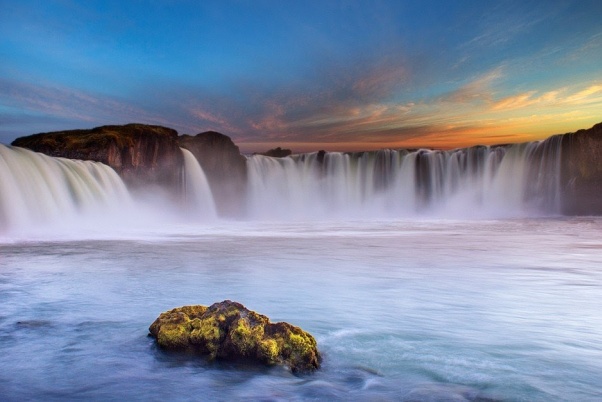Land of Fire and Ice

For a small country, this is one place which seems to have it all - geysers, waterfalls, glaciers, bubbling hot springs, volcanoes, (black sand) beaches, snow-capped mountains plus friendly, welcoming locals, ready to share their knowledge of Iceland’s history, wildlife and exciting ‘thing to do’
In August, I made a brief visit (shortened by COVID sadly) and wished I could have stayed longer. The scenery is astonishing... not always beautiful in terms of majestic peaks and green valleys; a large part of the country is comprised of ancient lava fields, but even that has its appeal.
Around every corner is another waterfall; whilst there is no official record, it is said that there may be as many as 10,000.
If you are short of time, then consider this: The Golden Circle - Iceland’s most popular sightseeing route. It comprises three major attractions: The historic Thingvellir National Park, the highly active Geyser Geothermal Area, and the majestic Gullfoss waterfall.
If you have more time, then look to do the Diamond Circle route (less well known) but equally spectacular. This 260-km route is widely considered to be the north-eastern alternative to the famous Golden Circle. What are the not-to-be-missed attractions? The Diamond Circle is comprised of four major sites; Lake Mývatn, Dettifoss Waterfall, Ásbyrgi Canyon and the fishing town of Húsavík.
ACTIVITIES
Two of the most popular are:
Whale Watching: - Easy to arrange and available close to the capital, Reykjavik.
Tours depart from three main locations: Reykjavik, Akureyri, and Husavik. Husavik is considered the 'whale-watching capital of Europe' due to the abundant animal traffic that passes through its fjords. Over twenty species of whales, dolphins, and porpoises call the Icelandic coastal waters home, ranging from the small harbour porpoises to the earth’s largest animals, blue whales.
Horse Riding: - One of the best ways to experience the beautiful countryside. Diminutive in size with short legs, and muscular build, this breed of horses is famed for its ability to live in Iceland’s sometimes harsh natural elements. The Icelandic horse is such a unique breed that breeding them with other horses is prohibited in Iceland, and when a horse leaves the country, it can never return.
Added to these, you have the Northern Lights (only in winter); glacier walking – available throughout the year and the famous Blue Lagoon.
